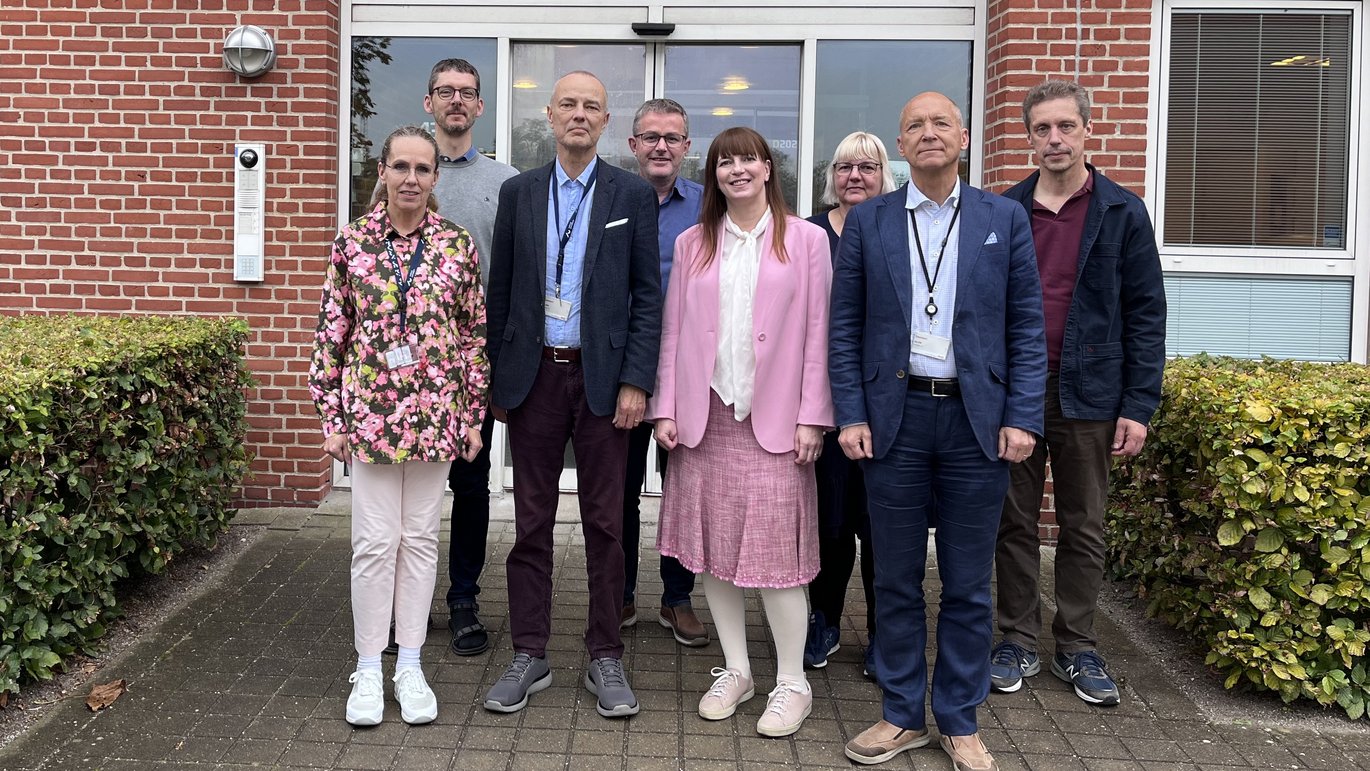Forensic medicine's research evaluated by international colleagues
Department of Forensic Medicine was recently visited by an external evaluation panel as part of Health’s research quality review. Here’s how it went.

How can we improve even further?
All departments at Health will be visited by an external panel over the next six months.
Following the panel’s feedback, the department head must develop an action plan.
The departments themselves have established the external panels based on criteria from the faculty's steering group for research evaluation - such as requirements for experience, academic breadth, impartiality, and balance in terms of gender, age, and institutional diversity.
Panel members are provided in advance with a comprehensive dataset and a self-evaluation prepared by the department leadership as part of the overall research evaluation.
Panel Visits Schedule
- June 24-25, 2024: Department of Biomedicine (read more on the faculty’s staff website)
- September 23-24, 2024: Department of Forensic Medicine
- October 7-9, 2024: Department of Public Health
- October 28-30, 2024: Department of Dentistry and Oral Health
- January 27-29, 2025: Department of Clinical Medicine
As part of Health's evaluation of research quality, all departments will receive visits from external evaluation panels through January 2025. The goal is to assess development opportunities in research.
The Department of Forensic Medicine hosted its panel in late September, and Department head Christian Lindholst provides a brief update:
What would you highlight from the panel’s visit?
I’d particularly highlight the process leading up to the visit. We spent a long time preparing, and that was just as valuable as the two days the panel was here. It gave us a chance to reflect on what we’re doing well and what we can improve. Many people participated in this conversation - both younger and older researchers and staff from our public service unit.
Did any of the panel’s feedback surprise you?
Yes, I was surprised by how strongly they connected our research to our public service duties.
The panel acknowledged the challenge of securing external funding for purely forensic research but still recommended that the Department should ensure closer integration between research and public services, particularly with projects commissioned by the police.
The three panel members might be right in suggesting there’s more synergy to be gained, but we can’t ignore the issue of funding in our daily operations. I found it surprising that they focused so much on finding this synergy without considering whether it’s realistically feasible. We have deliberately taken an opposite strategy, based on recommendations from previous advisory boards.
Is there anything you disagree with?
Not exactly, but I had hoped the panel would delve deeper into the future perspectives of our research. I would have liked them to point out a direction for where they see our current research fields heading. That’s something we’re now discussing ourselves. Of course, we’ll also look at how we can follow the path where our core public service tasks are more cohesively integrated into our research activities.
What were you most pleased to hear?
The panel repeatedly emphasized that the department ’s strong work environment and high employee satisfaction are major assets. This was especially highlighted after their discussions with younger researchers. We have the foundation to collaborate more across teams, and they pointed this out in a positive way. I’m also pleased with their recognition of the expertise within our three research units - the Bioanalytical Unit, the Unit for Forensic Imaging & Osteology, and the Unit for Clinical Forensic Medicine.
What have you gained from the evaluation process so far—both the self-evaluation and the panel visit?
The whole process has been a chance to pause and collectively discuss the quality of our research. It’s been incredibly valuable to have this shared focus and time to address the same topic together.
What’s the next step in developing the action plan?
We’ve just received the report, so now the management will work on identifying key areas for future improvement. I expect we’ll have a plan ready before Christmas.
The external panel visited the Department of Forensic Medicine on September 23-24, 2024, and the panel’s evaluation will be shared with all staff at the department.